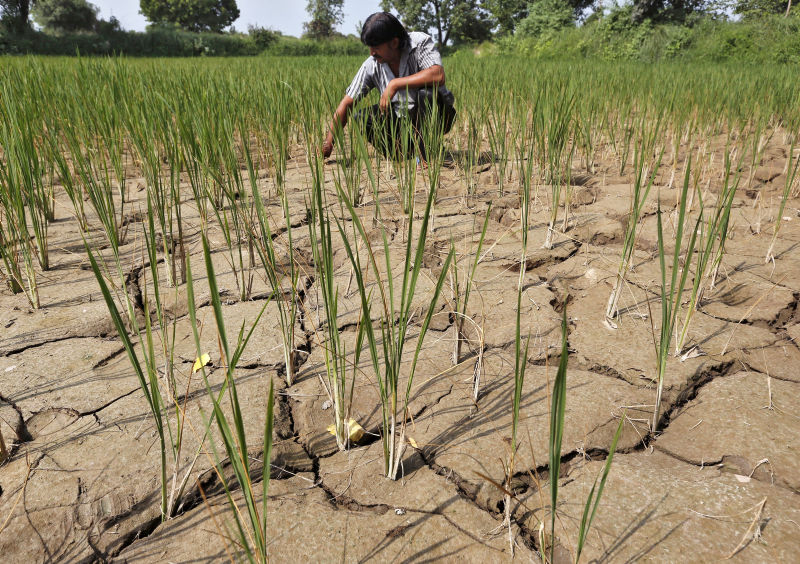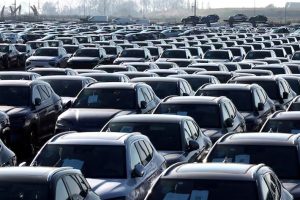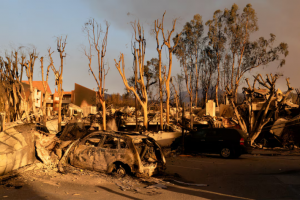South Asia is in the spotlight at this year’s Bonn Climate Change Conference, which kicked off on Thursday, as India and Pakistan emerge from a devastating heatwave that killed dozens, destroyed crops and sparked food and energy shortages.
Food insecurity is already being felt in the region. India, the world’s second-largest wheat producer, banned wheat exports to stave off shortages, causing a spike in prices around the world.
Pakistan’s vital mango industry is expected to shrink by half this year, as the crop has been severely hit by unusually high temperatures and water shortages.
“Extreme heat has major repercussions for the agricultural sector,” said Sumalee Khosla, climate change adaptation finance expert at the United Nations Environment Programme (UNEP).
“Climate-related heat stress will increase drought and exacerbate water scarcity for irrigation. This impacts farming communities and potentially creates further food security issues in affected countries.”
Governments are meeting in Bonn for the first time since the conclusion of the UN Climate Change Conference COP26 in Glasgow last November.
UN Climate Change Warning
They will focus on work in the key areas of mitigation, adaptation, support to developing countries – particularly finance – and loss and damage.
The UN’s top climate change official warned that climate change is progressing exponentially and hitting South Asia particularly hard.
With the world currently on track to more than double the 1.5 degree Celsius goal of the Paris Agreement by the end of the century, ambition must urgently be raised to avoid the worst impacts of climate change, and immediate action and progress in Bonn are needed, said UN Climate Change executive secretary Patricia Espinosa.
“We urgently require political-level interventions and decisions in each of these areas in order to achieve a balanced package,” Espinosa said in Bonn.
“We must move these negotiations along more quickly. The world expects it. It is not acceptable to say that we are in challenging times — they know that climate change is not an agenda we can afford to push back on our global schedule,” she said.
Temperatures in South Asia have at times reached close to 50 degrees Celsius, killing dozens of people in both countries and upending the daily lives and livelihoods of students, labourers and farmers.
India’s Hottest Month Since 1901
March was the hottest month on record in India since 1901. The extreme heat also came earlier in the year than normal, covered a huge landmass and persisted much longer than typical heatwaves.
Pakistan jumped from winter to summer without experiencing a spring, according to the country’s Climate Change Ministry.
The high temperatures have disproportionately affected farmers with little shelter from the heat and whose crops have wilted in the scorching sun.
The prolonged heatwave exacerbated by the climate crisis has played havoc with planting and harvesting seasons.
“Climate change will cause more stresses on the global food system,” said James Lomax, a UNEP sustainable food systems officer.
“The worst thing we can do is carry on as we are. We can start by diversifying the crops we plant and opting for more resilient seed varieties.”
More than a billion people are at risk from the effects of heat in the region, scientists have warned, linking the early onset of an intense summer to climate change.
- Reuters, with additional editing by George Russell
READ MORE:
China Seeks Better Adaptation to Climate Change As Risks Rise
Climate Change Row May Stop Australian Energy Giant’s Breakup
Hong Kong’s Hang Seng to Launch Climate Change Benchmark
























